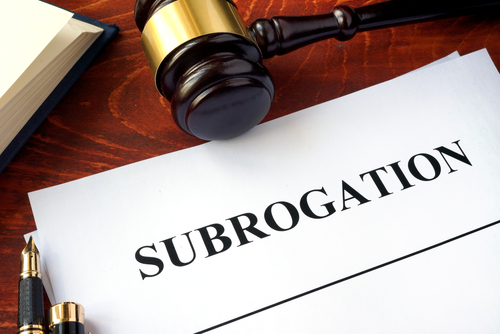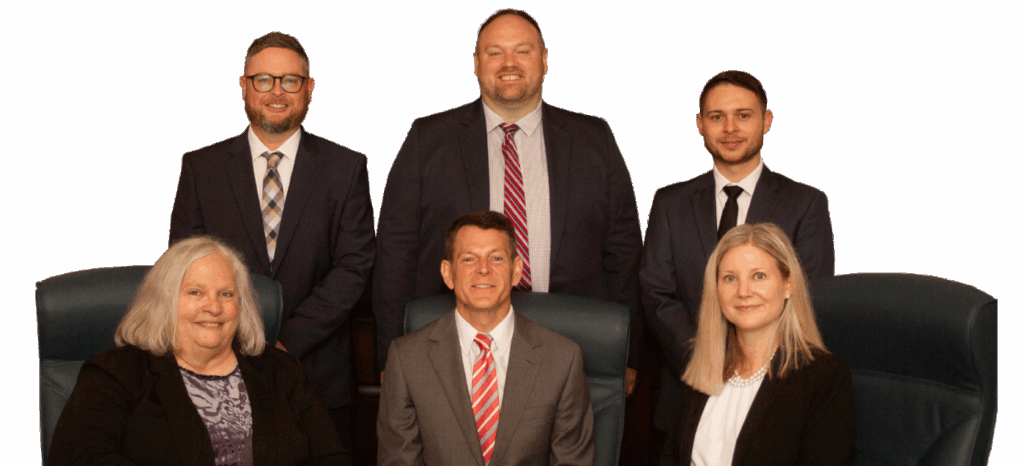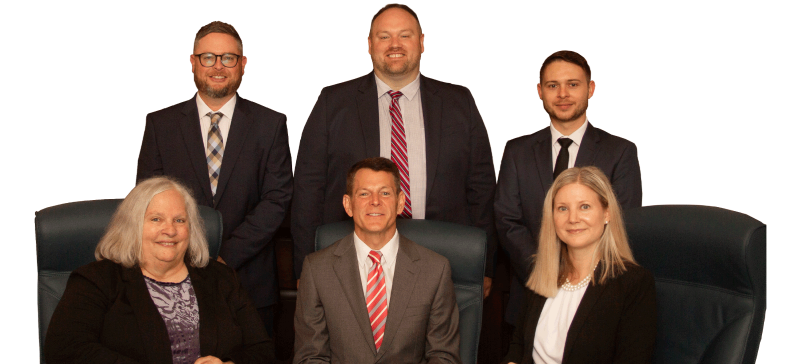
Don’t Allow Your Insurance Company To Take Money You Are Entitled To
Unfortunately, if you are one of the several thousands of Kentucky drivers injured in a car wreck each year, there are many reasons why you may want to contact the car accident attorneys at Rhoads & Rhoads. Often, questions that are specific to how medical bills – including treatment and recovery therapies – will be paid are top of mind. The injuries a person suffers in a motor vehicle accident should be covered by their medical insurance policy “hassle free,” but they should also be getting the coverage and support needed during this time from health insurance companies, rather than dealing with additional headaches or requests to receive reimbursement payments. Additionally, settlement money should be going to the injured person so they can fully recover from any damages that occurred as result of the accident, and not to their insurance company.
WATCH Attorney Kyle Lamar explains what to do if you have received bills from your health insurance company after a serious accident. He also discusses the meaning of “subrogation,” and how Rhoads & Rhoads helps to ensure you receive the most money possible.
Your Insurance Coverage vs. The At Fault Driver’s Insurance
Injured car accident victims should not wait for the at-fault driver’s insurance coverage to pay their medical bills – even though it is the at-fault driver’s insurer’s responsibility. The issue is that these companies often wait until any treatments or therapies are complete before deciding to send any payment through. Medical bills that go unpaid often end up with a collection agency and could result in additional legal issues and extra financial woes for the innocent, injured party.
Once car accident victims file a claim, they may not have to worry about this happening though. Their insurance coverage (perhaps auto or health depending on needs) will kick in to pay these medical bills as soon as they become due. Sometimes, after making the payments, insurers may connect with the injured person to discuss the case and damages in more detail, or to learn if any lawsuit has been set into motion. Insurance companies are big and powerful, with a team of lawyers behind them dedicated to fighting to get their money back from the liability they have covered. They will want to find out if anyone specific is to blame for the injuries, and consequently responsible for paying for their customer’s injuries. This involvement can drive factors leading towards insurance “subrogation.”
Insurance Subrogation At Play
Subrogation happens when one person or party (also know as the collateral source) is standing in the place of another. This could mean an insurance company filling in as the voice for the accident victim they provide coverage for. It can cause issues for the injured in figuring out who will pay for all or some of the injury damages. At this time, it is a good idea to begin consultations with an experienced attorney to help move claims forward and make sure that the insurance company will not be entitled to the greater rights than those possessed by the injured, innocent person who is rightful to receive initial benefits. In addition, legal defenses that could be used against the injured party could be assessed against the collateral source.
Kentucky’s PIP Insurance Coverage
Nearly three million Kentucky drivers have accepted Personal Injury (PIP) Coverage or “No Fault” insurance with their auto insurance policies unless they have formally rejected it. It is possible these same drivers may have to deal with subrogation. Some drivers may find themselves in an accident and injured even though coverage says that no matter who is at fault for an automobile accident, there will be benefits and money for the injured persons traveling. The money will be provided by the driver’s car insurance company to pay medical bills, lost wages, and other applicable expenses related such as replacement service loss or survivor’s loss. These reparation benefits will cover up to $10,000 in basic PIP coverage for each person in the car at the time of the accident.
Denial of PIP Coverage
PIP coverage, rarely won’t be accepted but if it is, there may be a couple of reasons why. Drivers can review this list of exceptions to better understand when the “No Fault” law may not apply to their case and should then consult an experienced attorney if they still have questions and concerns.
PIP coverage does not apply when:
- The accident was work related is not primary.
- The person who was injured has formally rejected PIP coverage.
- The owner of the vehicle did not have insurance on the vehicle.
- The accident and injuries were the result of a motorcycle crash unless PIP is purchased.
Unless purchased for the motorcycle, neither the motorcycle’s operator nor passenger is entitled to collect PIP benefits. If the motorcycle owner elects not to purchase basic PIP coverage, they are considered to have accepted the limitations on their rights unless a “No Fault” rejection form is filed. If a “No Fault” rejection form is not filed, they will be unable to recover the first $10,000 of an injury claim.
A person can opt out of receiving PIP benefits or accept a deductible of up to $1,000 when signing up for an auto insurance policy but this is not advisable and will only hurt your recovery by likely adding more costly needs. A driver would need to file an official form with the Kentucky Department of Insurance to reject PIP insurance.
Contact a Kentucky Car Insurance Attorney
Rhoads & Rhoads is Kentucky’s leading and experienced personal injury firm with offices in Owensboro and Madisonville, representing car accident victims throughout Western Kentucky. We offer free initial consultations, and all cases are taken on a contingency fee basis. We get paid only if we win or settle your case, so there is NO RISK involved.
Call us at 888-709-9329 or contact us by e-mail to schedule an appointment with one of our Madisonville or Owensboro personal injury attorneys.
Video Transcript
One of the most common concerns that our clients have here at Rhoads & Rhoads is when they’re injured – they’re in the hospital, they’re going to the doctor, and they’ve sustained lots of medical bills – and their health insurance starts coming after them to get reimbursed some of the money. They were the victim, they were the one who was injured through no fault of their own, but health insurance wants some of the money back.
This is a process called subrogation. Now that’s a fancy legal term but essentially what that means is the health insurance does have the right to get reimbursed some of the money that they’re owed. But they don’t get all of the money they want all the time.
And at Rhoads & Rhoads what we try and do is do everything under the law we can to limit the amount of money health insurance gets back. That way the money goes where it’s supposed to: to our clients, to compensate them for what they’ve been through.


